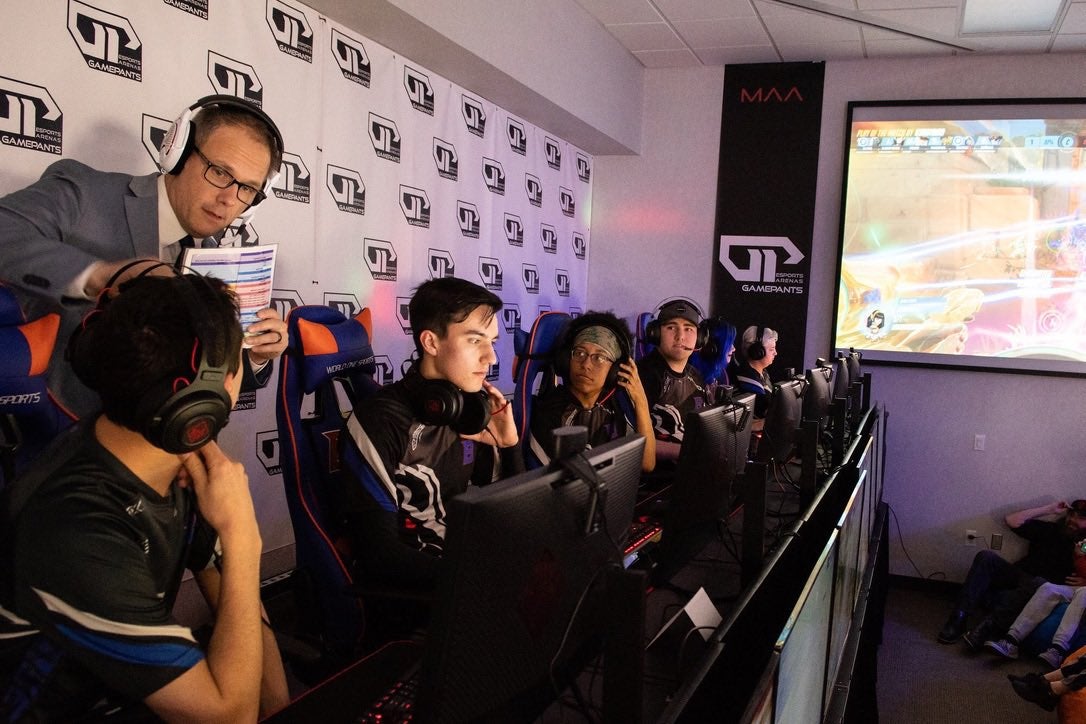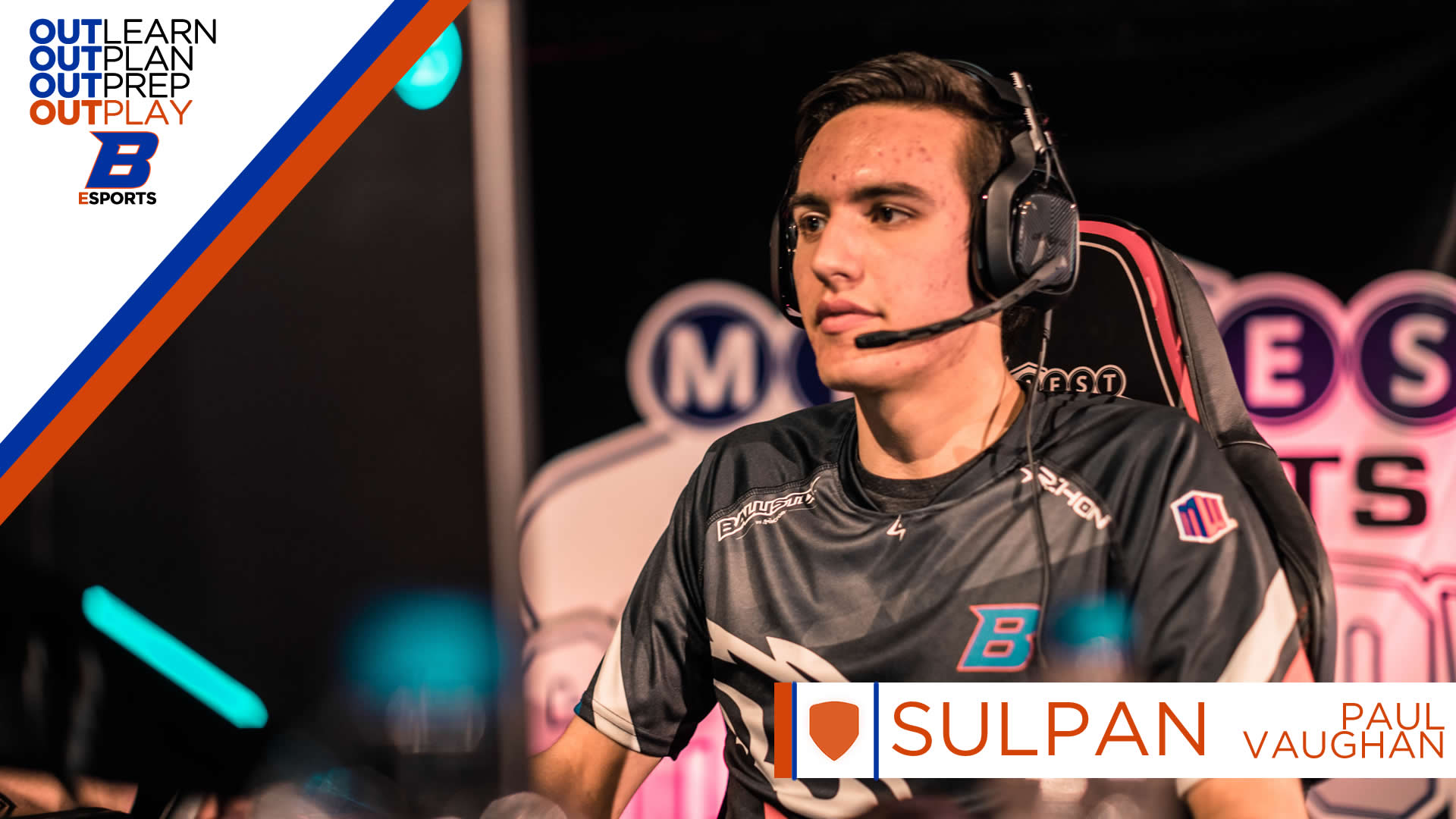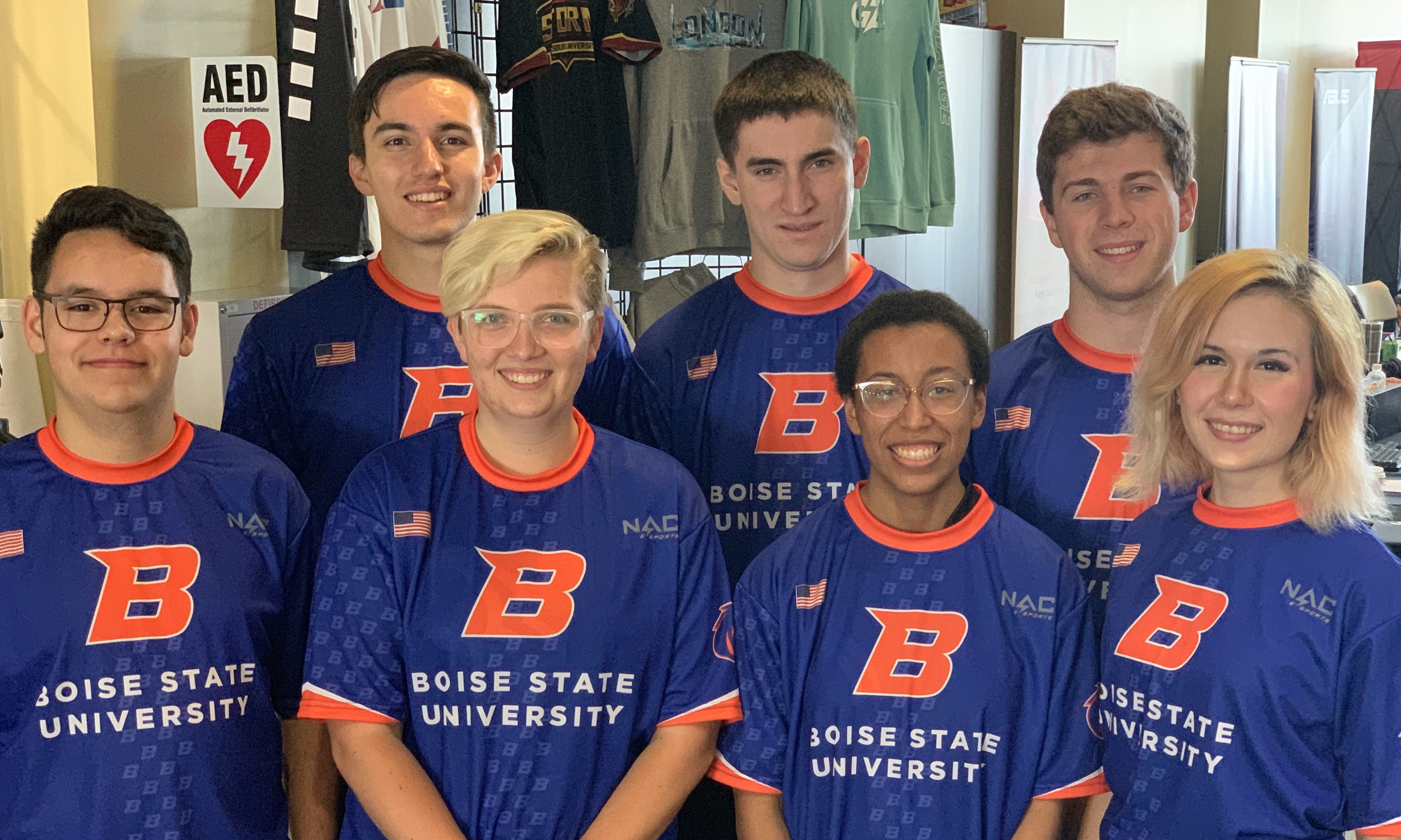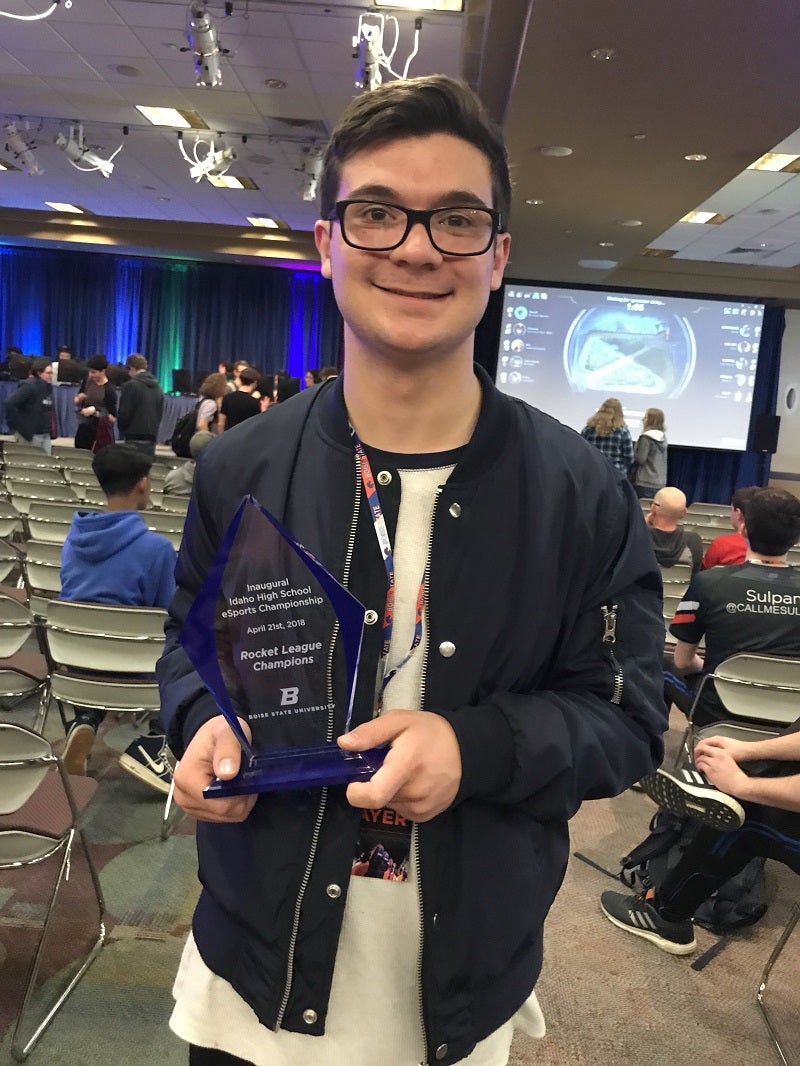
There is a long and storied debate around the term “athlete” and who it applies to. That’s not what this story is about. Boise State’s esports program has been all over the news lately – Check out this article from BoiseDev. With all the media attention on the program, I wanted to know more about the people. Who are the students behind this burgeoning program?
I got the chance to interview two students in the esports program in different stages in their lives, and with different motivations. One is a senior who was heavily involved in the esports program since the beginning, and the other is a first-year student who came to Boise State because of esports.
Paul, who is graduating in a few weeks, has been involved in esports for a long time, has seen its rise in popularity and in pop culture, and has been a part of helping grow the local scene. When he found out three years ago that the Boise State League of Legends student organization was going to dissolve because of the leadership graduating, he emailed the previous president and asked how he can help keep it alive.

“I never ran anything in my life before, and they ended up electing me as president.”
When he heard a rumor about an official Boise State esports program being developed, Paul quickly got involved.
“I remember going to Chris Haskell’s office and saying, ‘what are you doing, what is the plan?’ I was ready to do anything for Chris – This is amazing, this is the coolest thing ever, I want to be a part of this somehow.”
Being the League of Legends Club president, Paul helped the esports program establish Boise State’s League of Legends team and became one of Boise State’s first esports athletes. He was also a good enough player to be able to transition to Overwatch, a completely different type of game.
It’s not like it’s all play and no work though – practice and training in esports is a rigorous affair. Playing the game for hours as a team is one aspect, according to Paul. The other is recognizing what’s going on outside your individual play. To get better at that, players can watch replays of themselves and their teammates and discover where they made a mistake or where they could improve for next time.
“Being able to have that critical thinking process to tell yourself ‘I played that poorly, it wasn’t my team’s fault,’ is really important.”
Communication is also a huge aspect of esports. Being able to constantly call out your position, listen to your teammates’ calls, while also executing rapid-paced commands is a lot to master.
I asked Paul if he could let me in on something that not a lot of people know about esports at Boise State, and this is what he said:
“What no one will ever see is what a team environment provides for somebody at a university. That was the most important part of esports at least for me was the team aspect. When you’re on a team, it’s not just that you play video games together, you help each other outside of the game. If someone is struggling in a class, or something else is going on, your teammates are always there for you.”
After graduation, he’s looking at several job options. Some for his major, looking at local IT firms for data analyst positions, and some options based on his experience doing audio visual work. As for esports, he’s applying for esports coordinator, coach, or director positions at different university programs.
He will soon be the longest-involved esports player to graduate at Boise State, and one of his greatest accomplishments, he said, was helping grow esports and being able to compete at the Mountain West Championships in Las Vegas.

Paul’s efforts have been worthwhile. Paul helped put together the 2018 Idaho High School Esports Championships for students at high schools across Idaho to earn the title of state champions. A tournament that Joe, my next interviewee, competed in and won, and that helped begin his journey into esports. As he hands over the reins of the program to up-and-coming athletes like Joe, the program is thriving and shaping the lives of new Boise State students.
Joe is a first-year student aiming high in the esports world. His goal is to be a professional gamer. He’s relatively new to esports, but he has a long history of being a successful competitor. After watching the Rocket League World Championships for the first time, he instantly knew what he wanted to do. Before then, he had hardly even played Rocket League.
“Even when I had zero hours in this game, when I first saw that championship – I was like, ‘I am going to be on that stage,’ and that drive hasn’t changed.”
He enrolled at Boise State mostly because of the esports program – first introduced because of the Idaho High School Esports Championships that Paul helped put together.
“I heard about it and gathered up a team at my high school and we played and we won that tournament. I got my foot in the door because of that. It was the first tournament I’d ever been to, and it pushed me over the edge and got me to say ‘I can do this.’ It got me feeling a lot of pride and joy over winning the glass trophy which is now in my high school trophy case (Boise High) – that was a really huge sense of pride for me. I won. I did it. What am I gonna do to win the next one? And the next one?”

Although he’s still relatively new to Rocket League and the esports program, he’s already seen major improvement on his online ranking in the game. He’s currently ranked around the top 1% of players around the world.
For Joe, his major is his backup plan if being a professional esports player doesn’t work out. His ambition is to compete professionally in the Rocket League World Championships and become known as a game-defining player.
“I wholeheartedly believe in myself if I can keep myself focused on what’s important in terms of improvement, keeping my head in the game, making sure I’m not slacking off on practices.”
Like Paul, Joe also emphasized how important communication is to being on a successful team – and how draining of an exercise it can be to develop those skills. If you do something you’re really good at, but you constantly have to talk about how you’re doing it – it’s exhausting, and you might get distracted by communicating. You won’t be able to perform as well as you would have otherwise.
“You have to be able to accept you’re not going to be playing your best game mechanically until communication becomes second-nature because you’re going to have to sacrifice something to work hard for something else.”
For my final question, I asked Joe what it’s like being in the esports program:
“Esports has helped me find a home and community. I’m thankful for the people I meet along the way, the esports community is a joy to be around.”
By Mike Taylor